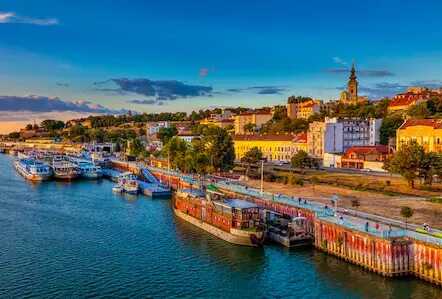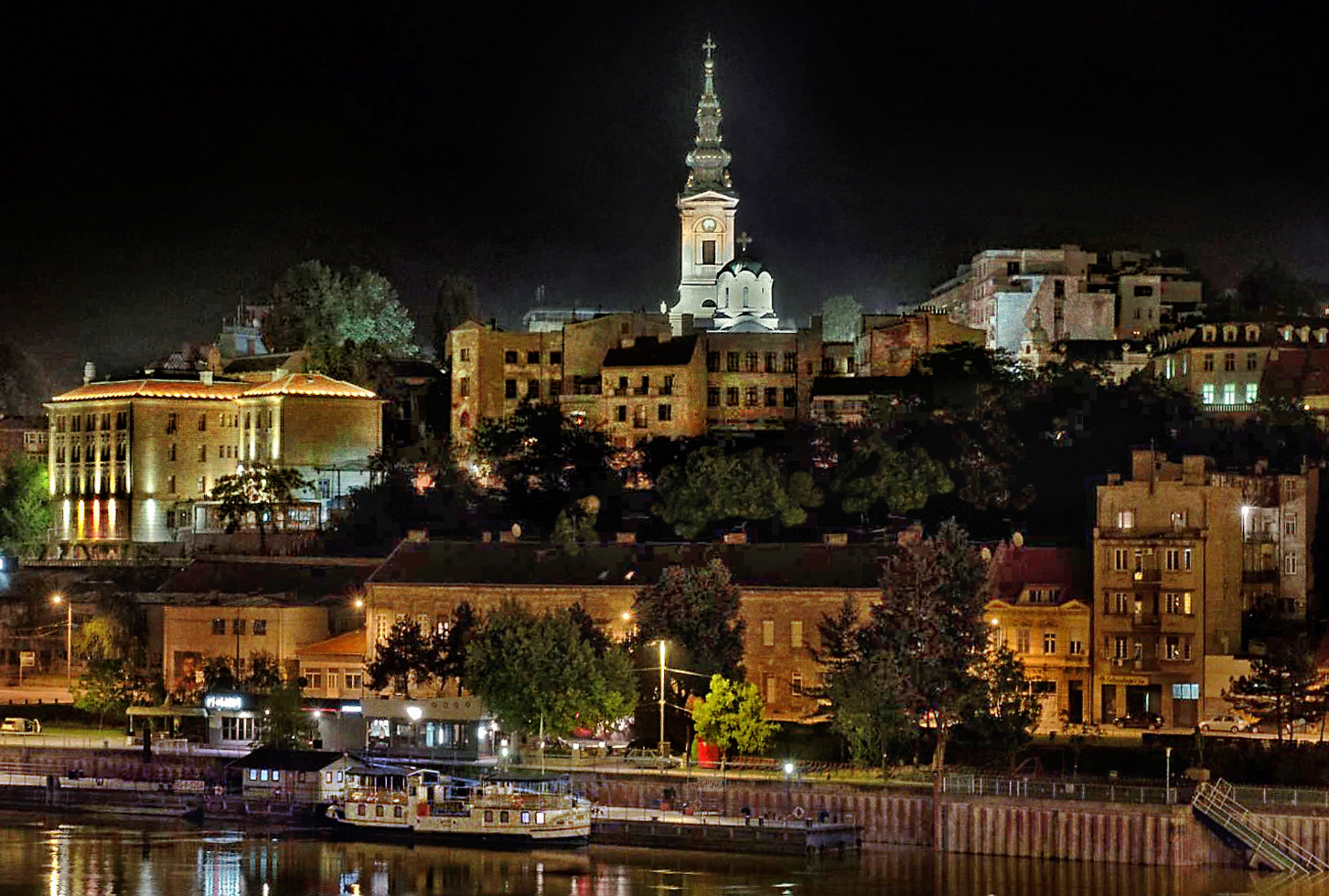Belgrade Part One

Belgrade, the capital of Serbia, is located at the confluence of the Danube and Sava Rivers in south-central Europe. With a population of 1.7 million people, it is the largest city in Serbia. There have been inhabitants here since the Paleolithic period. It was conquered by August from the Celts and became part of part of the Roman empire. It was settled by Slavs in the 500’s and then over the years controlled by various empires in the region. Its strategic location on the rivers caused it to be fought over and conquered back and forth between the Habsburg and Ottoman empires. In 1918 it became the capital of the Kingdom of Yugoslavia. After the end of World War 2 in 1945, Josip Broz known as Marshall Tito proclaimed the creation of the Republic of Yugoslavia and became the ruling dictator for the next thirty-five years until his death.
Tito rejected the Soviet attempts to bring Yugoslavia into the Eastern block and instead developed relationships around the world forming the non-aligned movement. Many Serbs to this day will claim that the period with Tito in power was the greatest time in the history of the country. Success in athletics, the arts and the economy of the country would tend to support that argument. After Tito’s death, without his hand, and the corresponding disillusion of communism throughout Eastern Europe the Republic began to break up into the various countries we have today. The Republics of Bosnia and Herzegovina, Croatia, Macedonia, Montenegro, and Slovenia broke into separate countries over the 80’s and early 90, but unresolved ethnic issues between the Orthodox Serb’s, Catholic Croat’s, and Muslims caused a period of instability and wars. I won’t even attempt to describe and explain those issues that date back a thousand years. Imagine the Jews and the Arabs but add in another ethnic group and you can see the complexity. If you ever become interested and want more information about the history of the Balkans and Yugoslavia, I would recommend two Misha Glenny’s books –Balkans: Nationalism War & The Great Powers 1804 – 1999 and The Fall of Yugoslavia.
